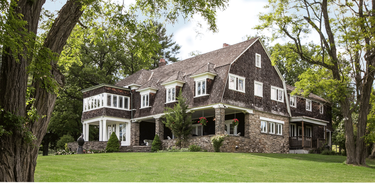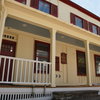Logan Nonfiction Program to test hybrid format with $1M grant
RENSSELAERVILLE — The Logan Foundation has again granted $1 million to the Logan Nonfiction Program — hosted by the Carey Institute, in Rensselaerville — with which it will fund its first hybrid program, program director Carly Willsie told The Enterprise this week.
In 2016, the Logan name got attached to the then-two-year-old nonfiction program at the Carey Institute when it provided an initial $1 million grant.
The Logan family, based in California, has long supported in-depth journalism, first as the Reva and David Logan Foundation and now as the Logan Family Foundation.
“Prior to COVID-19,” Willsie said, “we housed fellows here at the Carey Institute campus in Rensselaerville with an operating budget of around $750,000. After the initial coronavirus lockdowns and government mandates were put in place in March 2020, the Logan Nonfiction Program created a virtual fellowship, which is ongoing through this fall.
“Moving forward — with the steadfast aid of the Jonathan Logan Family Foundation — we will pivot the program to more deeply support journalists and documentary filmmakers by providing two weeks in residence as well as numerous online discussions and mentoring sessions with award-winning journalists, authors and documentary filmmakers,” she said.
“The $1 million grant from the Jonathan Logan Family Foundation,” Willsie said, “enables us to experiment with this pilot program to find the best ways to continue to support the type of nonfiction that changes our world (with the type of limitations that COVID-19 has placed on all global residential fellowships).”
Willsie said that the grant will fund the majority of the program’s 2022 budget, which accounts for expenses ranging from lodging at the Carey Institute campus to fees for mentors and professional speakers who will engage with the fellows. The program will also be funded in part by the Open Society Foundations.
She said that the utilization of a hybrid format is not related to the fact that the Carey Institute campus has been listed for sale, following COVID-related impacts to the Institute’s bottom line.
“With this new hybrid program design, we seek to explore the best approach to fellowship in a post-COVID world,” Willsie said.


